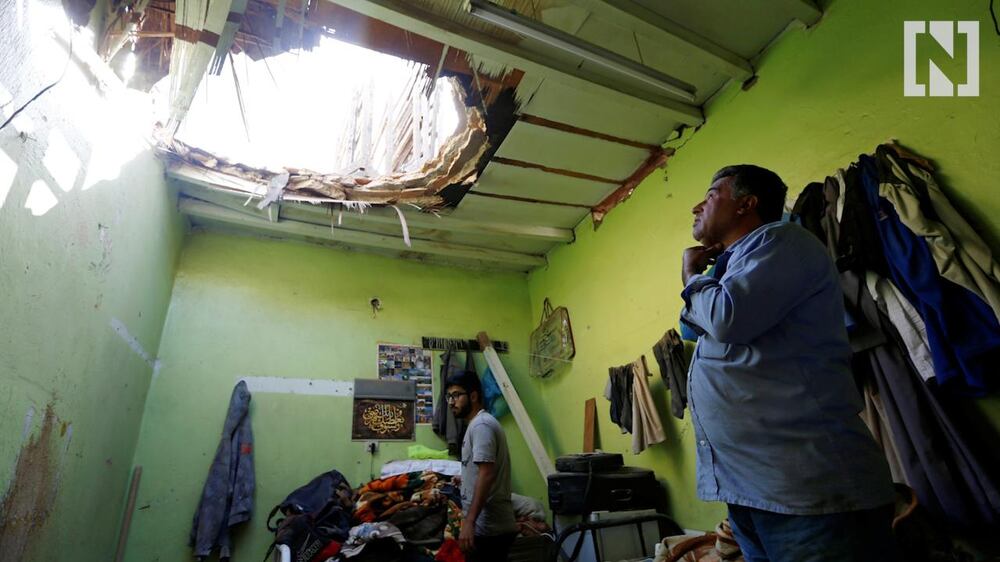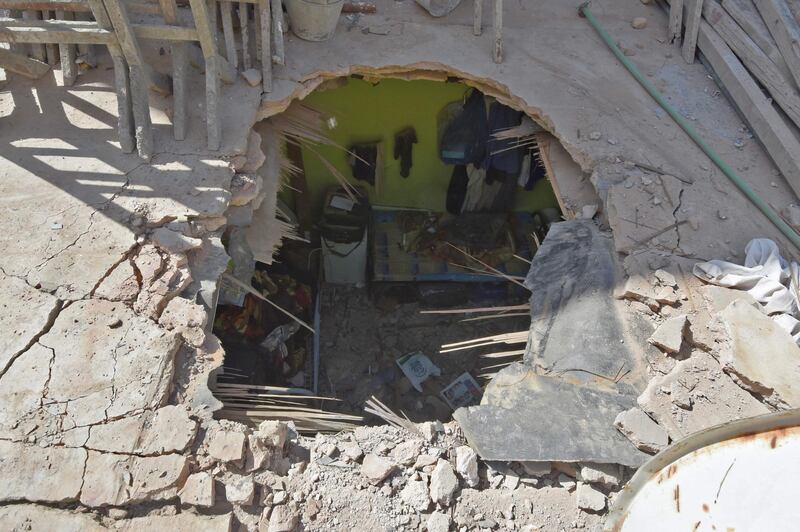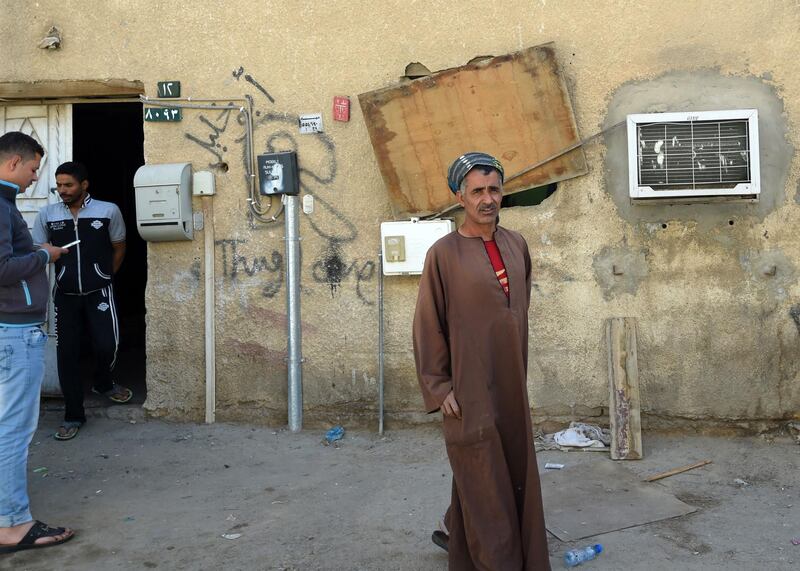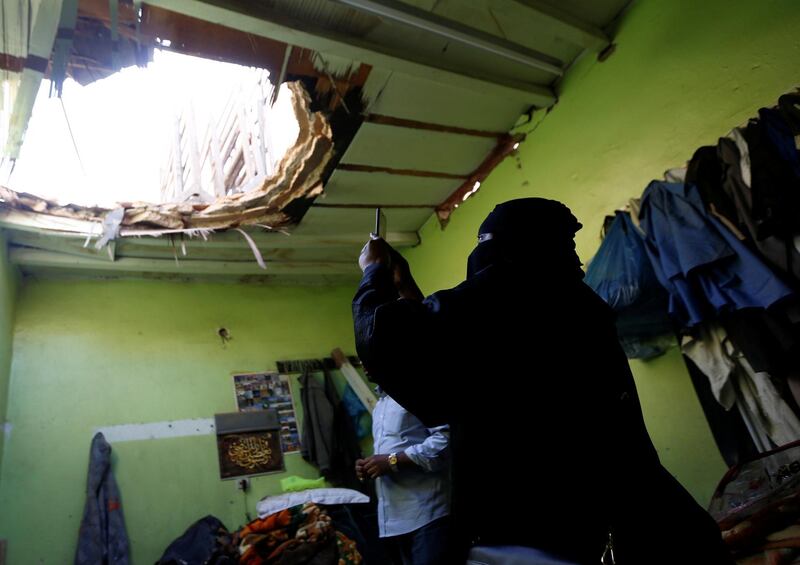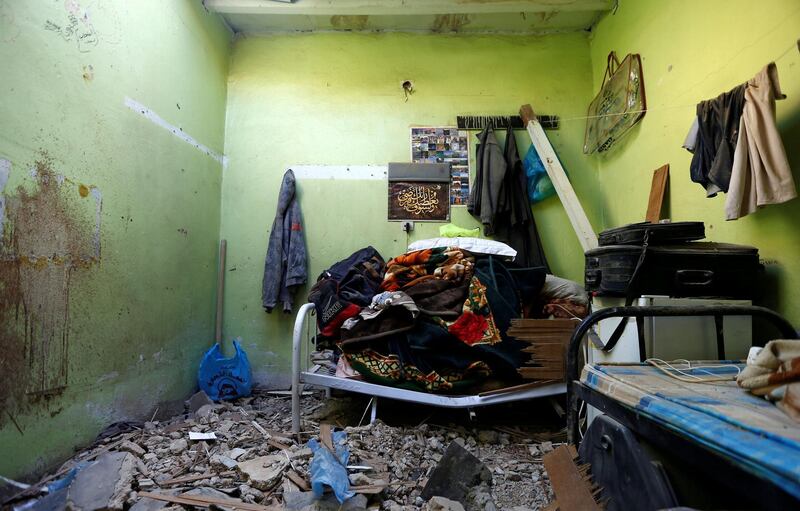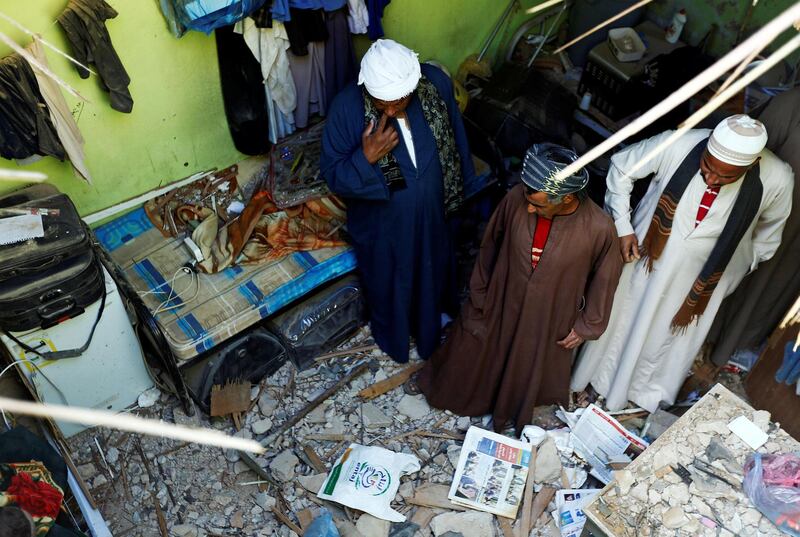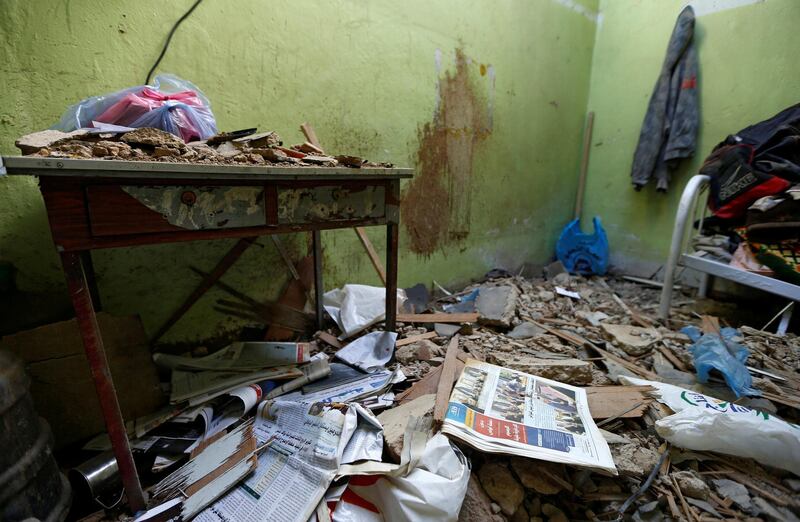Yemen's Houthi rebels fired a barrage of ballistic missiles targeting Saudi Arabia late Sunday on the third anniversary of the war in Yemen, with fragments of one missile over Riyadh killing one person and wounding two.
The casualties were the first in Saudi Arabia’s capital since the war in Yemen began in March 2015, though previous rockets fired by the Yemeni rebels have caused deaths in other parts of the kingdom.
The rebels said they launched a missile attack targeting Riyadh's King Khalid International Airport and other sites, showing their ability to strike deep into the neighbouring kingdom.
The barrage likely will spark new criticism of Iran’s role in the conflict as well, as the Houthis identified some of the missiles fired as a type that the United Nations and the West say comes from Tehran.
_______________
Read more:
Iran provides Yemen’s Houthis material for explosives, report says
UAE-backed campaign puts Al Qaeda under pressure in Yemen
US-UAE counter-terrorism operations on the rise in Yemen
Disease adds to woes of Yemenis struggling to cope with war
_______________
As The National reveals today, a new report by an arms tracking group claims that Iran is providing Yemen's Houthi rebels with materials to manufacture armour-piercing improvised explosive devices.
The Saudi military said that it intercepted seven ballistic missiles fired by the Houthis at the kingdom– three of them targeting Riyadh, two aimed at Jazan and one apiece at Najran and Khamis Mushait.
“This aggressive and hostile action by the Iran-backed Huthi group proves that the Iranian regime continues to support the armed group with military capabilities,” coalition spokesman Turki Al Malki said.
“The firing of multiple ballistic missiles towards cities is a serious development.”
The Houthi-run Al Masira television channel claimed the rebels had targeted the airport in Riyadh as well as other airstrips south of the kingdom.
Videos of interceptions as released by Saudi Gov.:https://t.co/BY3bCytOrV https://t.co/O5SA8NXpwl https://t.co/sYc5LSVVp8 https://t.co/gUk1W1Av8R https://t.co/FbridayfNA https://t.co/d1SlmScVEh
— Joyce Karam (@Joyce_Karam) March 26, 2018
The strikes come after the US defence secretary last week urged Saudi Crown Prince Mohammed bin Salman during his visit to Washington to pursue "urgent efforts" to end Yemen's wrenching conflict.
The Houthi rebels have fired dozens of missiles into Saudi Arabia since last year, all of which Saudi forces claim to have intercepted.
The Saudi-owned satellite news channel Al Arabiya aired footage that it said showed Patriot missile batteries firing at the incoming Houthi missiles. Online videos showed what appeared to be a missile fuselage lying on a street in Riyadh.
One Egyptian national was killed and two other Egyptians suffered wounds when a fragment of a missile over the Saudi capital fell on a residential neighborhood, the state-run Saudi Press Agency said.
Al Masirah identified some of the missiles fired as the Burkan, or Volcano, missile. The United Nations, Western countries and the Saudi-led military coalition fighting in Yemen all say the Burkan mirrors characteristics of an Iranian Qiam ballistic missile.
They say that suggests Tehran either shared the technology or smuggled disassembled missiles to the Houthis who then rebuilt them.
Iran has long denied supplying arms to the Houthis, though a growing body of evidence contradicts their claim.
"Improvised weapons used by Yemen's Houthi forces have been manufactured using the same, identically configured components as those recovered from Iranian-backed groups in Bahrain," said James Bevan, executive director of Conflict Armament Research, a UK-based organisation that monitors the flow of weapons to conflict zones.
More than 10,000 people have been killed in the conflict, which began after the Houthis and their allies seized Yemen's capital, Sanaa, in September 2014 and began a march south.
